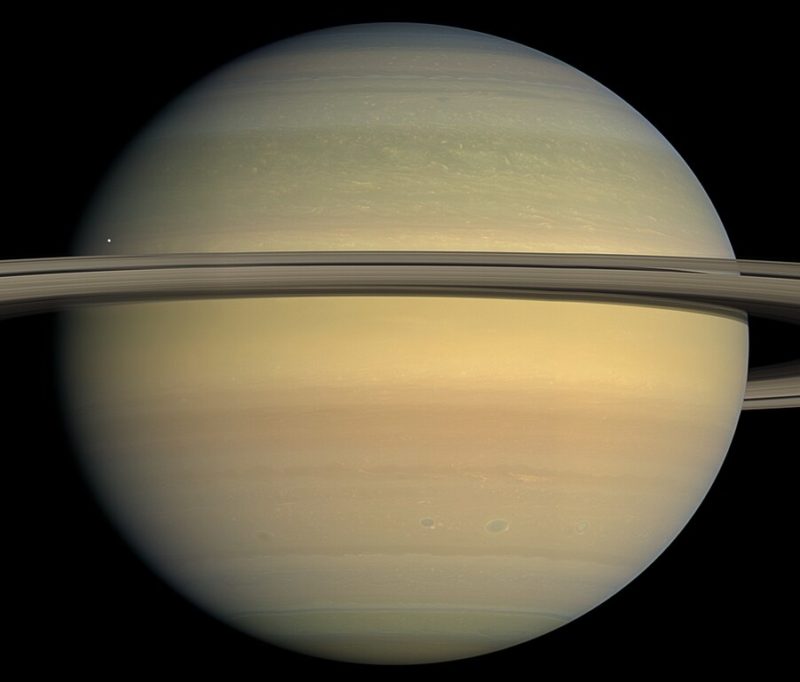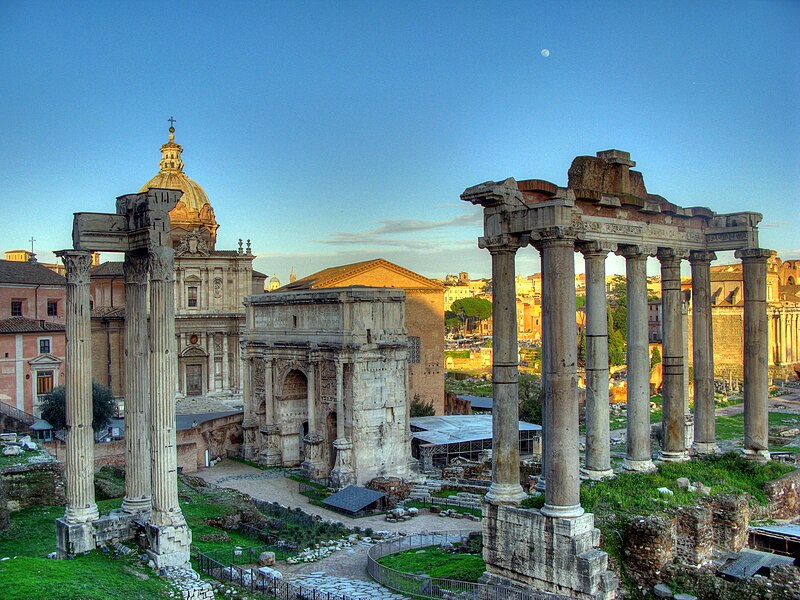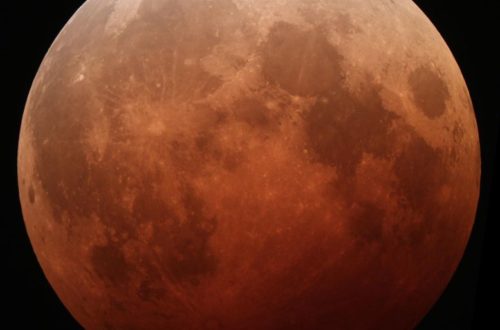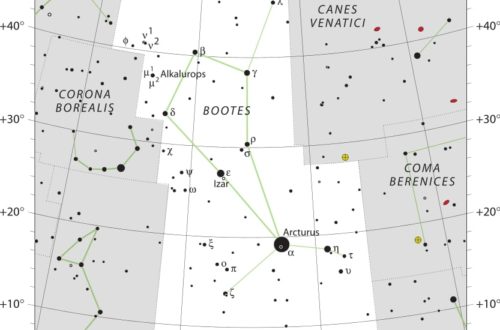How Did Saturn Get Its Name? Exploring Mythology and History

Like all the planets, Saturn’s name comes from ancient mythology— specifically, Roman mythology— revealing the deep cultural history behind these distant worlds. The name comes from Saturnus, the Roman god of agriculture and time. This pattern of naming speaks volumes about how ancient civilizations understood and explained the cosmos.
Today, the planet’s majestic rings continue to inspire our imagination. Because of its unmistakable presence in the night sky, it has intrigued and inspired observation for millennia.
Naming Saturn shows how close astronomy and mythology were to each other as a discipline. It’s a testament to how humans have historically attempted to connect the mysteries of the cosmos with their own cultural narratives.
Origin of Saturn’s Name
Saturn is named for the Roman god of agriculture and wealth, a hint at the deep history and mythology embodied by the planet’s name. The name “Saturnus” in Latin has an ancient history that is entwined with great traditions and etymological depth. It comes from the Latin phytonym “satureia” and is related to “saturare,” to seed or fertilize.
Saturn’s name probably originated with the Etruscan deity Satre. This association eventually fused with the Roman god Saturn, reflecting the blend of cultural influences. The planet’s name is a testament to its striking features. It represents abundance and the passing of time, just like the seasons it governs.
Ancient Greek and Roman Influence
Roman society deeply influenced the naming of celestial bodies, folding their gods into a largely Greek system of astronomical classification. Saturn, like his Greek counterpart Cronus, is a perfect example of this. When the Greeks’ successors, the Romans, adopted Cronus into their pantheon, they beefed up his attributes.
Connection to Agriculture
Saturn’s association with agriculture is very deep, representing fertility and abundance. The god’s influence reached even further, as many agricultural festivals were dedicated to Saturn, such as Saturnalia, a holiday celebrating harvest and prosperity. His likeness encouraged agrarian customs and lore of fecundity, celebrating the rhythms of life and cultivation.
Saturn’s association with wealth, via his consort Ops, the goddess of resources, deepens this connection.
Saturn in Roman Mythology
In Roman mythology, Saturn was a prominent deity, worshiped for his connections to time and the seasons. Myths of Saturn and his children, like Jupiter, reveal his deep importance to culture. His worship included intense rituals that emphasized his role in facilitating liberation and abundance.
Saturn in Roman Culture
Saturn was a key figure in the Roman pantheon. Ancient people worshipped him as the god of time and the seasons. The Romans honored Saturn with a merry midsummer festival called Saturnalia.
In this raucous celebration, social hierarchies were reversed, allowing for a period of antics and mischief. During the week of Saturnalia, slaves were treated as social equals, and rules of society were turned upside down, embodying Saturn’s power over time and change.
The Saturnalia festival was a cornerstone of Roman social life, characterized by an atmosphere of feasting, gift-giving, and general merriment. The legacy of this festival is visible in many contemporary holiday practices, shaping our celebration of both Christmas and New Year’s.
The Temple of Saturn on the Roman Forum was an important place, home to the state treasury and archives. Saturn’s connection to the Greek Titan Cronus further emphasizes his role in the divine genealogy, emphasizing his importance in mythology.

Evolution of Planet Naming
Early Naming Practices
The story of naming celestial bodies begins with early civilizations who gazed at the night sky, fascinated by the movements of objects they soon identified as planets. These civilizations, the Greeks and Romans, were steeped in mythological and astrological traditions and found these to be perfect lenses through which to name.
Greek astronomers referred to these celestial objects as “planetes asteres,” or wandering stars. This name reflects their distinctive motion compared to the fixed background of stars.
When they started discovering planets, they named them after their gods—Mercury, Venus, Mars, Jupiter, Saturn. Saturn, named after the god Saturnus, represented agriculture and harvest. These names were of immense cultural value, linking astronomical events with the heavenly order.
Influence of Astronomy Advancements
The revolution in the naming and understanding of planets would happen thanks to advancements in telescopic technology. As telescopes began to show them more detail, the conception of a universe revolving around Earth began to fall apart.
Space exploration opened our eyes even wider, leading to the rethinking of names. The scientific community really led the charge to get these names standardized. They went to great lengths to ensure the names reflected our greater knowledge of the universe.
Discoverers in the 17th century wanted to stay true to the theme of mythological naming, merging the discoveries of the new scientific tradition with the old.
Modern Naming Conventions
Today, the International Astronomical Union (IAU) is a body that establishes the rules for naming celestial objects, prioritizing uniformity and readability. The IAU’s influence ensures names are universally recognized, facilitating scientific communication.
Public engagement has increasingly become a third factor, with cultural significance being a consideration that arose in the naming process. Saturn, with its 146 moons as of 2023, exemplifies modern practices where new discoveries await official naming by the IAU, reflecting both scientific and cultural influences.
Conclusion
Saturn—a planet that has inspired dreams and fantasies for hundreds of years—has a name rich in history and myth. Its name, derived from the Roman god of agriculture and time, signifies a rich history between mythology, culture, and science that continues to this day.
Frequently Asked Questions
How did Saturn get its name?
The planet Saturn is named after the Roman god Saturnus, who represents agriculture and time, highlighting his significance in Roman mythology.
Who was the Roman god Saturn?
The Roman god Saturn, known for his role as the god of agriculture, wealth, and time, was also regarded as a father figure to many deities, including Jupiter.
Why is Saturn associated with time?
Saturn, named after the Roman god Saturnus, symbolizes time through its mythological ties to the Greek god Cronus, representing life’s cycles and the changing seasons.
How does Saturn’s name connect to its mythology?
Saturn’s name, derived from the Roman god Saturnus, reflects its mythological origins as the agricultural god, emphasizing the planet Saturn’s cultural significance.
What is the significance of Saturn in mythology?
In mythology, the Roman god Saturn, known for abundance and renewal, symbolizes the cyclical nature of time, ushering in a golden age of peace and prosperity.
Would you like to receive similar articles by email?




